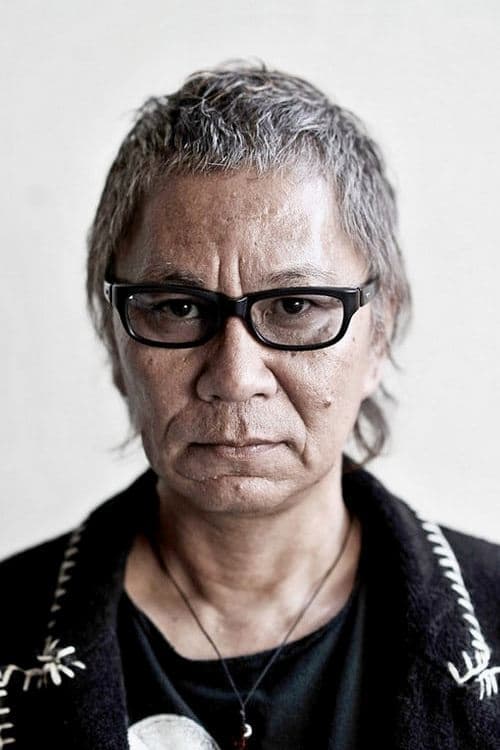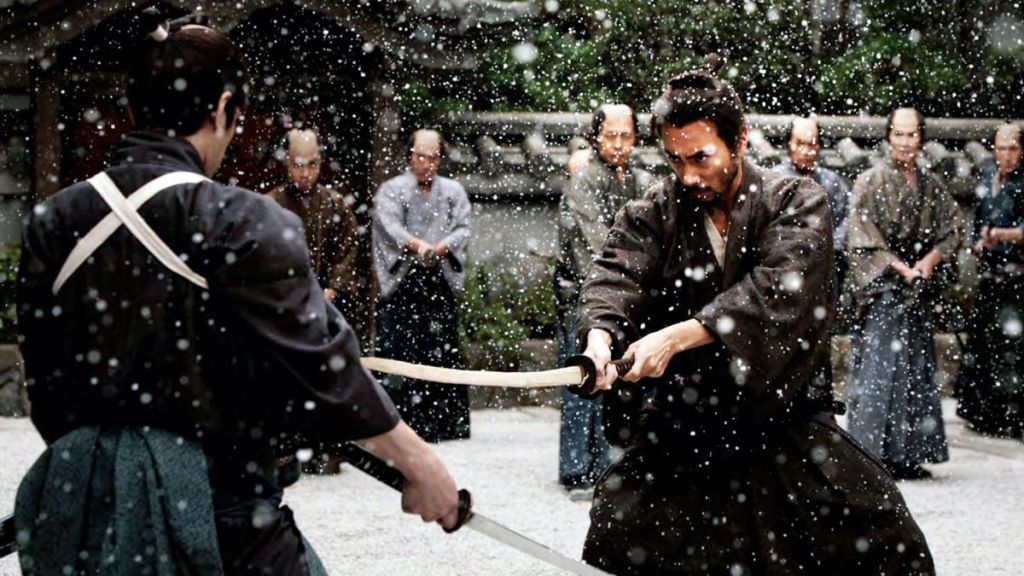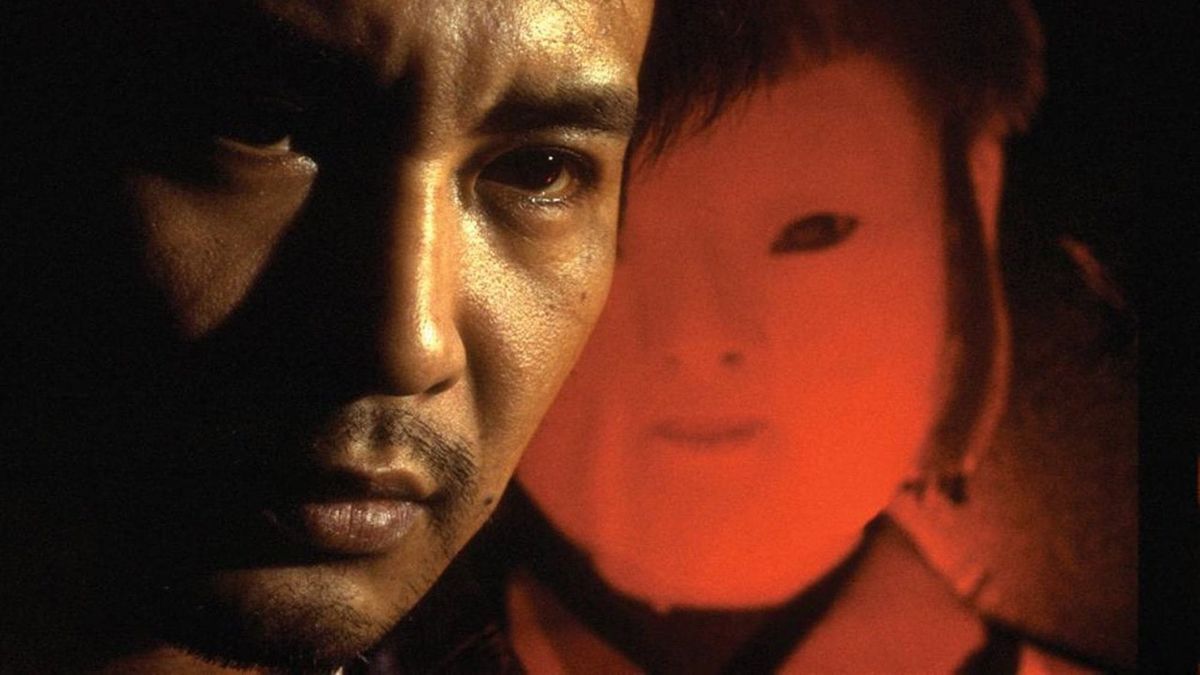Takashi Miike is a prolific Japanese filmmaker best known for his audacious and often controversial works, traversing genres from horror to yakuza gangster films and even family-friendly fare. With a filmography that boasts over 100 projects, Miike’s versatility and boundary-pushing approach to cinema have earned him a reputation as one of Japan’s most unpredictable and iconoclastic directors.
Miike’s films frequently explore the darker aspects of human nature and society, delving into themes of violence, morality, and the challenges of modern life. His cinematic landscapes often reflect a chaotic, brutal, and, at times, surreal vision of the world. In Ichi the Killer, for instance, he dives into the psyche of the yakuza underworld with an unmatched level of graphic violence and visual inventiveness. Meanwhile, Audition masterfully combines elements of romantic drama and horror, taking viewers on a chilling journey of love, obsession, and retribution. Miike’s propensity to subvert genres can be seen in films like Gozu, which melds yakuza gangster tropes with grotesque horror, and in Visitor Q, which presents a deeply disturbing yet darkly comic take on family dynamics.
His works often defy convention, employing unique cinematography, bold color choices, and unexpected shifts in tone. This visual flair, combined with his willingness to challenge traditional narrative structures, makes his films both striking and memorable. 13 Assassins, for instance, starts as a slow-burn samurai drama but culminates in a frenetic, large-scale battle sequence that lasts nearly an hour. In Happiness of the Katakuris, Miike surprises audiences with a bizarre mix of claymation sequences, horror, and musical numbers, defying any single genre classification.

Takashi Miike (1960 – -)
Calculated Films:
- Audition (1999)
- 13 Assassins (2010)
Similar Filmmakers
- Fruit Chan
- Gakuryū Ishii
- Hideo Nakata
- Johnnie To
- Kim Jee-woon
- Kinji Fukasaku
- Kiyoshi Kurosawa
- Koji Wakamatsu
- Naoyuki Tomomatsu
- Noboru Iguchi
- Noboru Tanaka
- Park Chan-wook
- Ryuhei Kitamura
- Shin’ya Tsukamoto
- Sion Sono
- Takashi Kitano
- Tetsuya Nakashima
- Yoshihiro Nishimura



Takashi Miike’s Top 5 Films Ranked
1. 13 Assassins (2010)
Genre: Chambara, Jidaigeki

2. The Bird People in China (1998)
Genre: Drama, Adventure, Comedy

3. Audition (1999)
Genre: Psychological Horror, Drama

4. Hara-Kiri: Death of a Samurai (2011)
Genre: Chambara, Jidaigeki

5. First Love (2019)
Genre: Yakuza eiga, Black Comedy, Action Thriller, Neo-Noir

Takashi Miike: Themes and Style
Themes:
- Outsider Characters: Miike’s films frequently focus on characters outside the societal norm, whether they’re yakuza gangsters, avenging samurai, or other fringe figures. This focus offers a lens into the alienation and struggle of those on the margins.
- Visceral Violence: Many of his films employ violence as shock value and commentary on human nature and society. It’s raw, unfiltered, and often hard to digest.
- Dark Humor: Alongside intense sequences, Miike has a knack for blending disturbing elements with humor, creating a unique tonal mix that can both unsettle and entertain.
- Societal Critique: His films often comment on Japanese society, exploring its hypocrisies, complexities, and the pressures of conforming to expectations.
- Sexual Politics: Works like Audition explore the dynamics of male-female relationships, the horrors of gender expectations, and the consequences of repression.
Styles:
- Eclectic Genre Mixing: Miike does not confine himself to one genre. From horror and action to family dramas and musicals, his filmography is varied, but there’s always a Miike touch evident in the execution.
- Graphic Visuals: Miike’s visuals can be overtly vivid and confrontational, whether it’s the blood-spattered scenes in Ichi the Killer or the more stylized violence of 13 Assassins.
- Narrative Experimentation: He doesn’t shy away from playing with narrative structures, resulting in movies that can be nonlinear, confusing, and profoundly intriguing.
- Unsettling Atmosphere: Regardless of the genre, there’s often an undercurrent of unease in his films, achieved through a combination of visuals, sound design, and narrative beats.
Directorial Signature:
- Unpredictability: With Miike, one never knows what to expect next. Even within a single film, he might shift tones or genres abruptly. This unpredictability keeps audiences on their toes.
- Boundary-Pushing: Miike often ventures into controversial or taboo topics. He’s unafraid to challenge societal norms and cinematic conventions, making his works refreshing and contentious.
- Traditional and Modern: While films like 13 Assassins harken back to traditional samurai epics, Miike infuses them with modern sensibilities, creating a fusion that’s uniquely his.
Takashi Miike – Great Director




